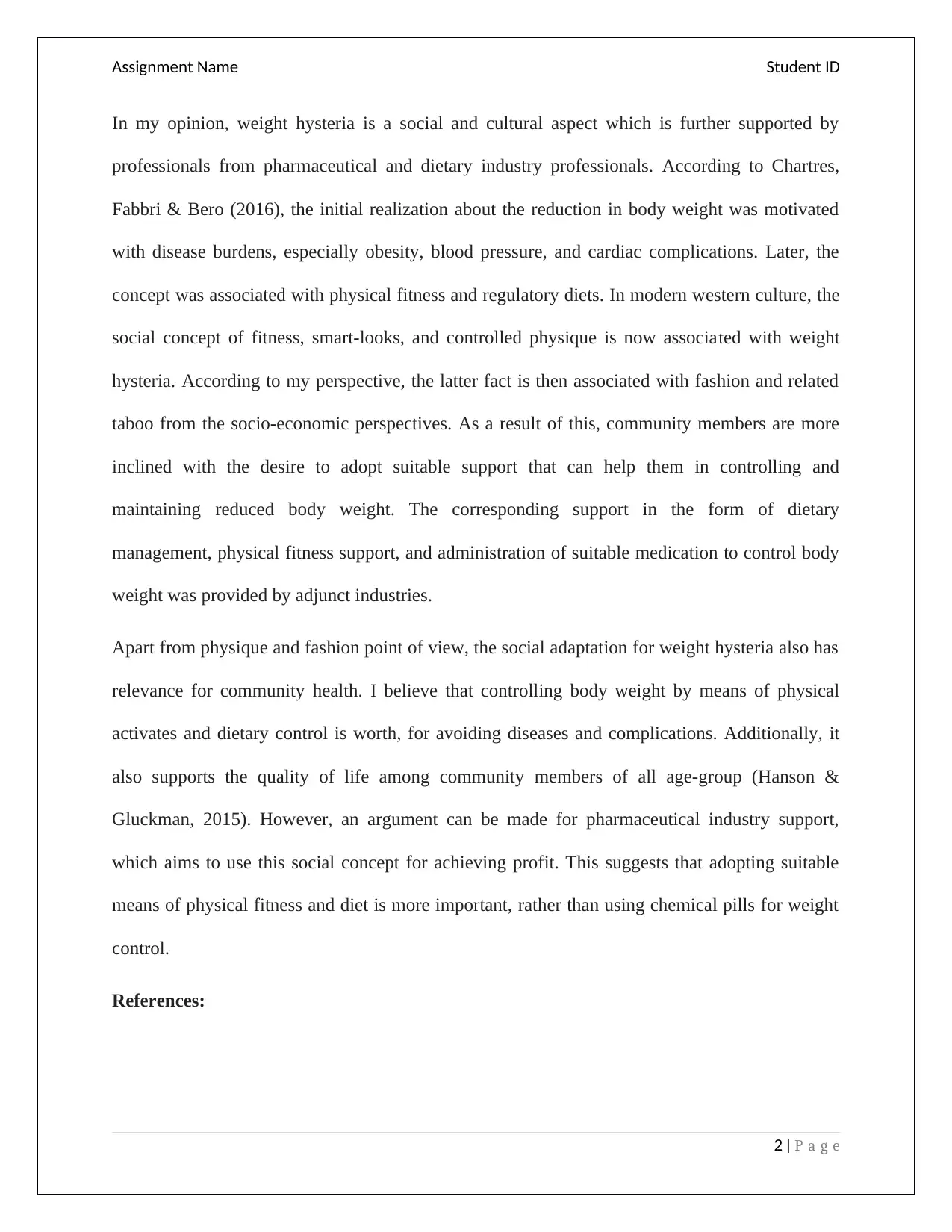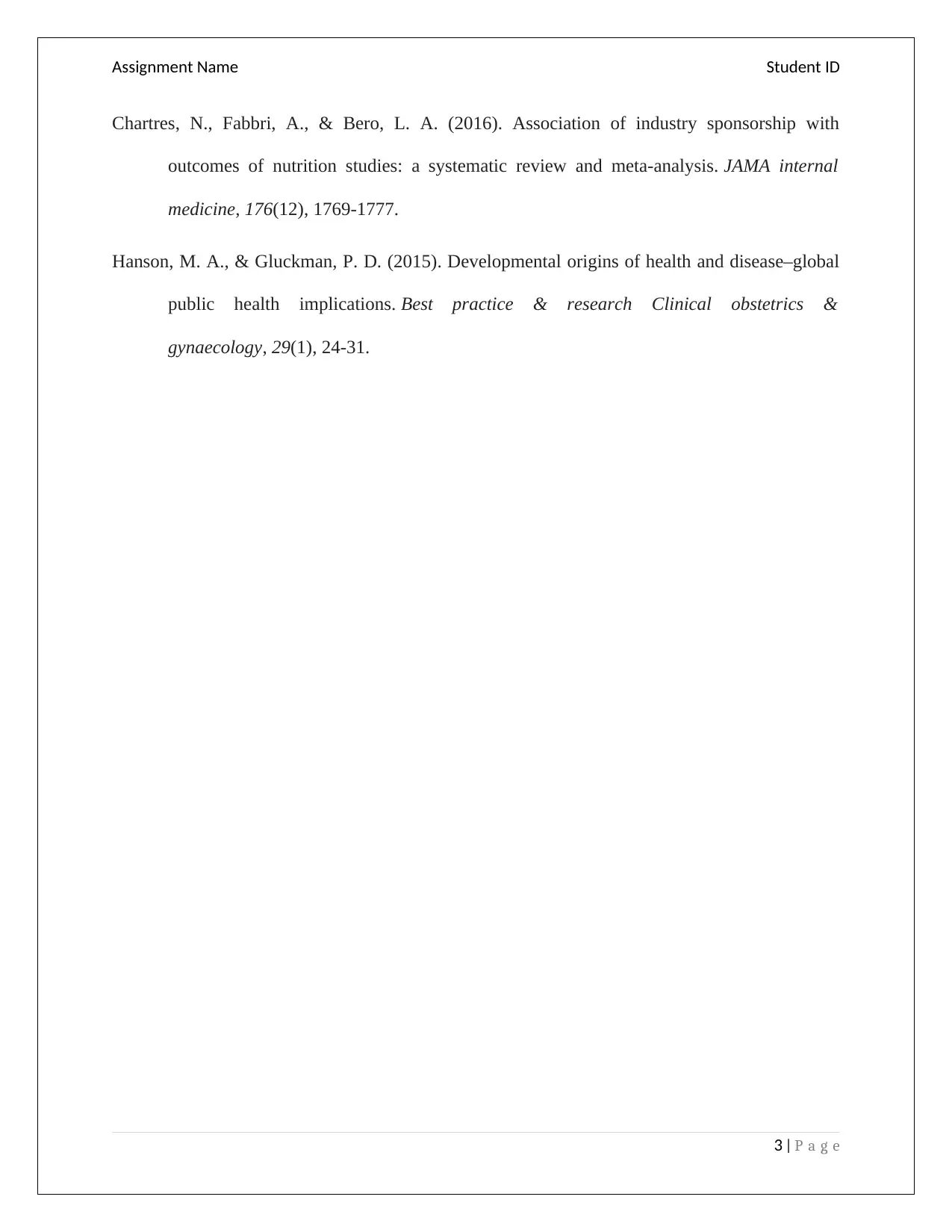Analyzing Weight Hysteria: Cultural Norms vs. Industry Interests
VerifiedAdded on 2023/04/07
|3
|342
|450
Discussion Board Post
AI Summary
This discussion post delves into the validity of weight hysteria in modern Western culture, questioning whether it stems from genuine health concerns or is driven by special interests, such as the pharmaceutical and diet industries. The author argues that while the initial focus on weight reduction was linked to disease prevention, it has evolved into a social construct tied to fitness, appearance, and socio-economic factors. The author acknowledges the health benefits of weight management through physical activity and diet but raises concerns about the pharmaceutical industry's potential exploitation of this social phenomenon for profit. The post concludes by advocating for prioritizing physical fitness and dietary control over relying on chemical pills for weight management, supported by citations from recent scholarly articles.
1 out of 3





![[object Object]](/_next/static/media/star-bottom.7253800d.svg)